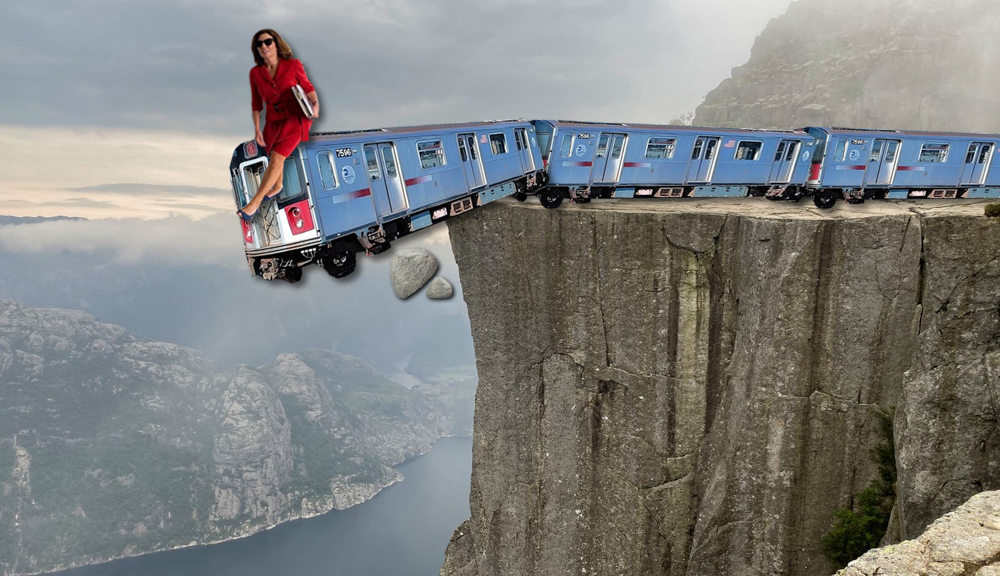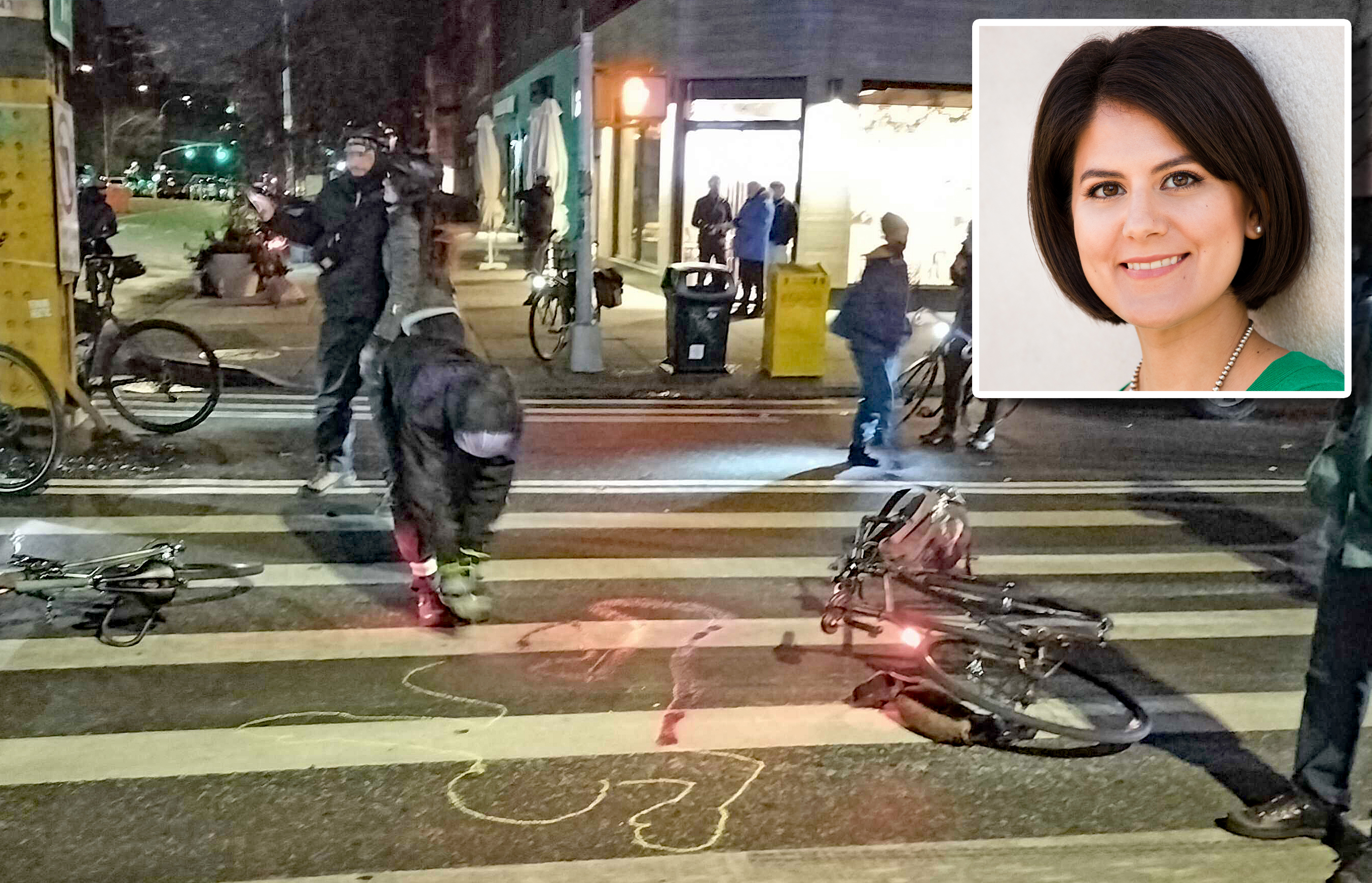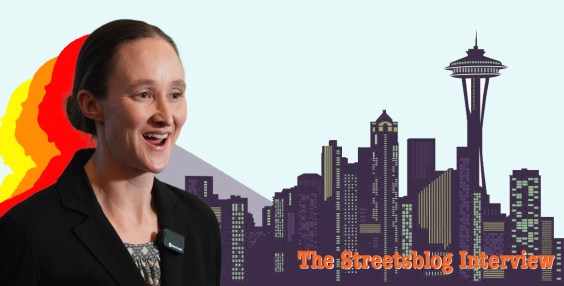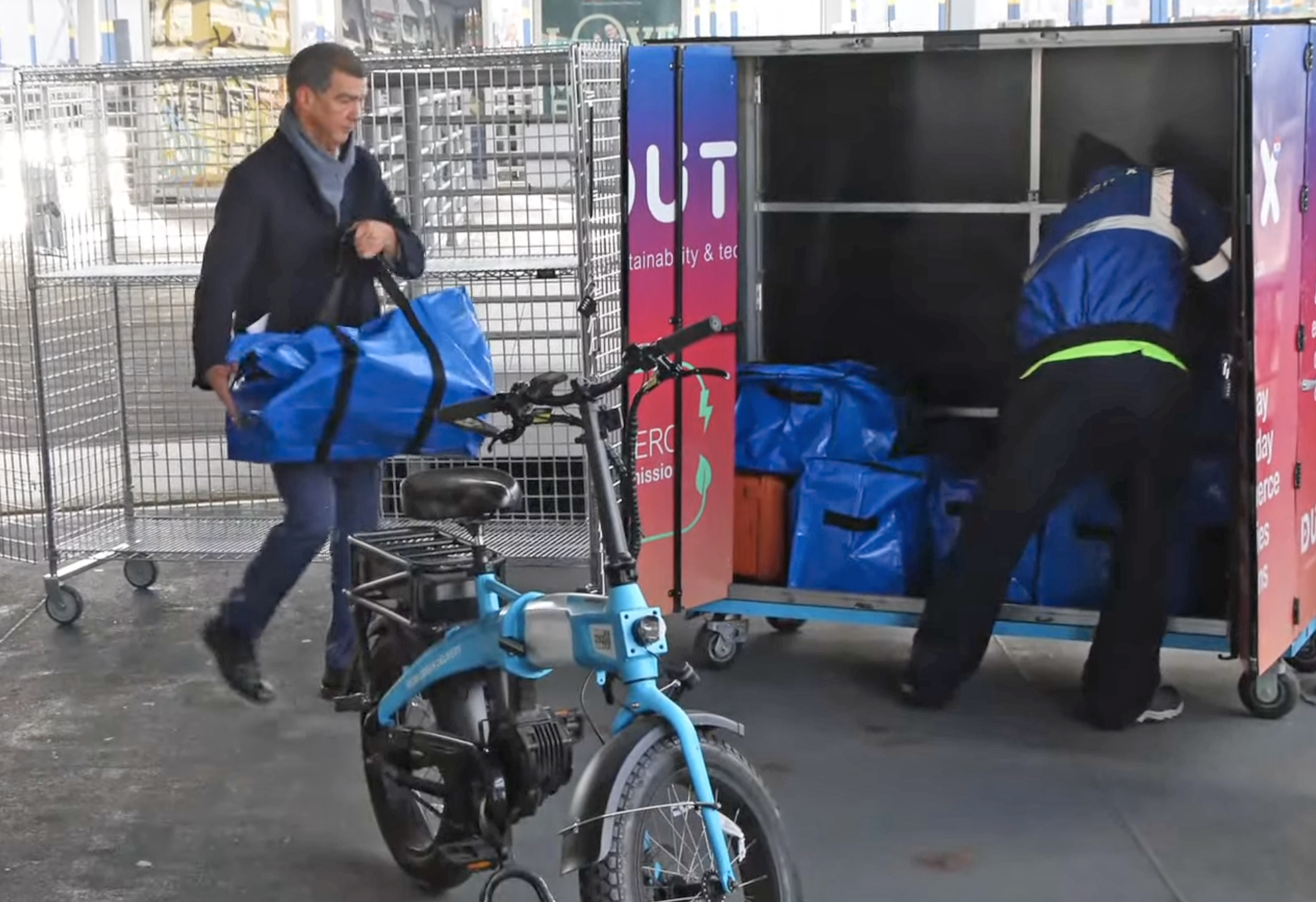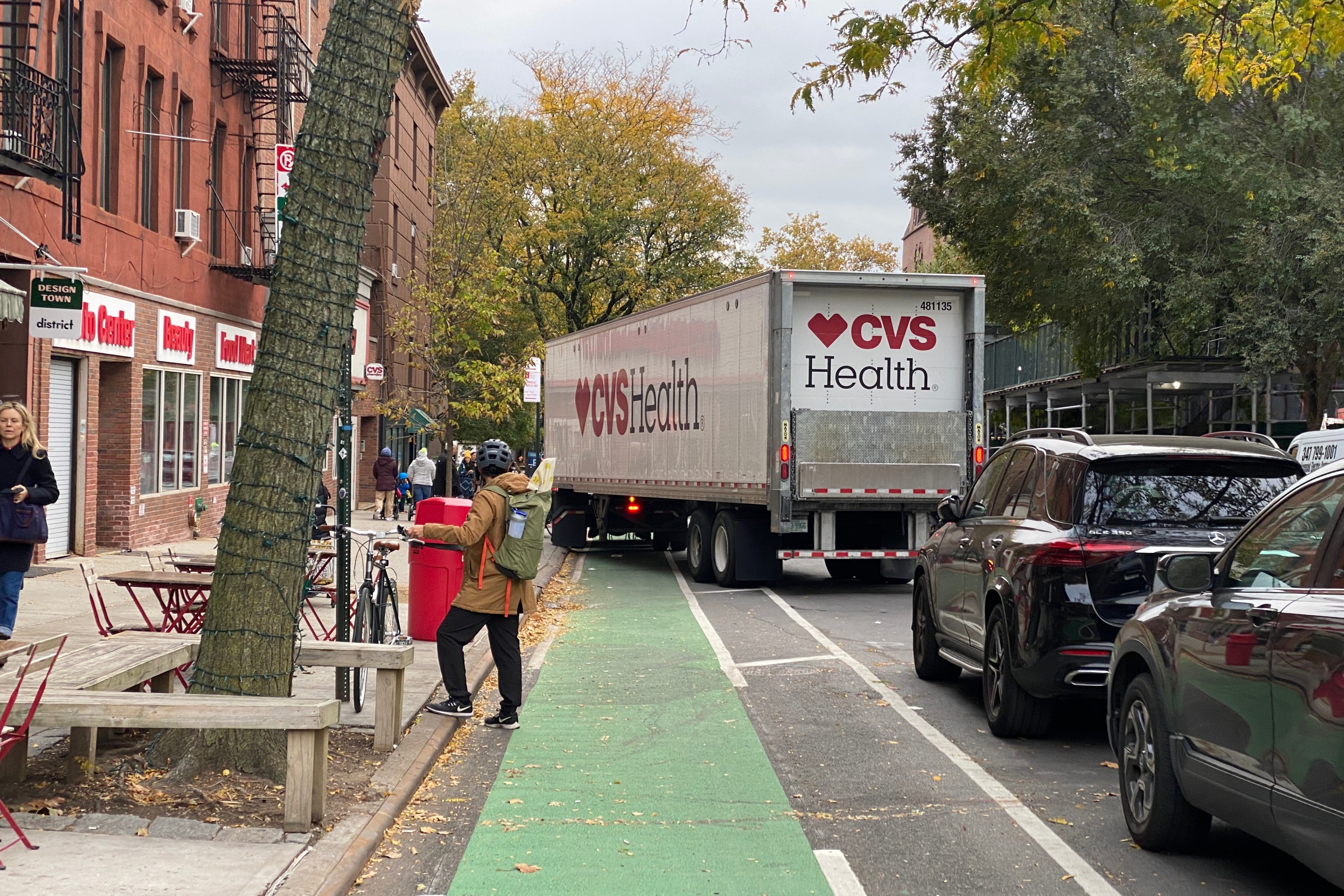Call it the Hochul-cratic Oath: First, do harm.
Gridlock Gov. Hochul has seen zero political benefit from pausing congestion pricing earlier this summer, according to new polling showing her approval rating at record lows — while New York's transit system falters thanks to her 11th hour decision to nix the toll and swing seat New York Republicans take all the political credit.
It's lose-lose-lose: Hochul's "pause" cut over $15 billion out of the MTA's current $55 billion capital plan and threatened funding for its upcoming capital plan, which officials said this week will cost at least $68 billion. And while the governor reportedly thought canceling the toll would improve Democratic Party chances in swing seats, it has yet to extend any voter goodwill to Democrats.
Add to that a Siena poll released on Thursday that Hochul's favorability rating at an all-time low of 34 percent — five points lower than before her congestion pricing reversal and lower even than the hated former President Donald Trump. A whopping 54 percent of New York's have an unfavorable view of Hochul.
It's not what you want if you're any elected official anywhere. But it's especially not what you want if, like Hochul, you made a high-profile decision to blow up a marquee state law that you spent years touting as a signature achievement — specifically to shore up support for candidates in tough Congressional races.
"Kathy Hochul is one of the most unpopular governors in America, and if she wants to look anywhere about what the 'drag' on the ticket is, all she needs to do is look in the mirror," said one operative working races in those districts.
"In race after race, she's easily the most unpopular person, and the pause did nothing because no one was talking about congestion pricing anyway."
The New York Times earlier this week highlighted Hochul's keen interest in taking credit for any Democratic victories in the Empire State in November — as she continues to reel from Nancy Pelosi and other national Democrats blaming her poor 2022 performance for the current Republican house majority.
Hochul initially cast her congestion pricing decision as a response to voter "cost of living" concerns, but her inconsistent stance on the policy has made that a tough sell for toll-skeptic voters: She's variously tried to claim the "pause" is only temporary and that she'll find money elsewhere to replace toll revenue and that the program might happen but the $15 fee set by a panel she personally selected was actually too expensive.
The governor's constant waffling means Republicans can take credit for congestion pricing's delay — while warning that victorious Democrats could bring the politically unpopular (for now) toll back after the election.
New York enacted the law that requires the MTA to toll car trips in Manhattan below 60th Street in 2019 to address the transit agency's staggering maintenance and modernization needs amid cratering bus and subway service.
The toll does not currently poll well, but experience in other cities that have enacted congestion tolls show the policy increases in favorability once it goes into effect, proves to cut car traffic and doesn't actually rinse working people — who overwhelmingly rely on the transit system the toll would fund.
The last three and a half months have given New Yorkers little reason to trust the governor, according to congestion pricing supporters and advocates — no doubt some of the people who helped keep Hochul's favorability above 40 percent before this summer.
"Governor Kathy Hochul took a gamble when she sabotaged our public transit system for political gain and she lost dearly," said Riders Alliance Director of Policy and Communications Danny Pearlstein. "New Yorkers see right through the governor's failure of leadership."
Multiple political operatives working swing state races conveyed similar impressions to Streetsblog.
There is no evidence Hochul's congestion pricing antics did anything for Democratic candidates, the operatives said. Democrats also aren't trying to attach themselves to the politically toxic governor's bizarre decision making by highlighting congestion pricing in paid media or on the stump.
The only thing anyone can say for sure is that the pause has let car-loving Republicans brag that they killed congestion pricing.
"The biggest impact that the suspension of congestion priority pricing has had was it allowed swing seat Republicans to take credit for pressuring Hochul," said Alyssa Cass, a partner at Slingshot Strategies. "And I have not seen evidence that that suspension moved voters towards her or Democrats."
The cynical theory behind congestion pricing suspension was that it would help swing seat Dems. What happened? Swing seat Rs took credit for pressuring Hochul, no voters moved toward her/Dems. A mess on policy *and* politics. https://t.co/BFr0U4C0Mc
— David Weigel (@daveweigel) September 19, 2024
Meanwhile, in the real world
Outside of the clown show that is Congressional politics, Hochul's decision made a dog's breakfast of the MTA's finances and the 2025-2029 capital plan the MTA Board is supposed to vote on next week.
The $68 billon plan is full of blinking red lights warning that pieces of the transit system are falling apart after years of disinvestment. The MTA needs massive amounts of financial help from Albany to pay for sorely needed repairs, long-awaited signal and station modernization and expensive expansion projects.
Per MTA Chief Financial Officer Kevin Willens, the MTA is counting on $35 billion being available for the plan, which includes an aggressive assumption of $14 billion in funding from the federal government, more than Washington has given to any of the past three capital plans. But the agency will need another $33 billion to complete the funding puzzle — on top of the $15 billion hole Hochul blew in the current plan by thwarting congestion pricing.
Hochul has yet to put forward reality-based solutions. On Wednesday, she suggested that the federal government could give even more money to the MTA than the record-setting investment the MTA is already banking for the next plan.
"We will review the MTA's proposal for the upcoming five-year capital plan and fight to secure as much finding as possible," Hochul said Wednesday. "That includes pressuring Washington to deliver additional infrastructure dollars and working with our partners in the Legislature and City Hall to determine priorities and capacity during the upcoming budget negotiations."
So far, the only state official to suggest any actual new revenue sources for the next capital plan has been State Comptroller Tom DiNapoli. But the combination of taxes DiNapoli identified as options in a recent report raise at most $11.1 billion, which still leaves the MTA over $20 billion short for its spending plan.
Meanwhile, Hochul claims she will use next year's legislative session to work with state legislators to figure out what to do about the congestion pricing-sized budget hole she created in the current capital plan — six years after legislators assumed they had solved that problem by passing the tolls in the first place.
Any new revenue source that goes to the 2020-2024 plan, such as the tax increases identified by Comptroller DiNapoli, will eat into what can be used for the 2025-2029 plan.
Hochul, meanwhile, told reporters on Thursday that it was "myopic" to suggest she can't figure out how to fund the MTA's two most expensive capital plans ever at the same time.
We'll just have to see if telling advocates and legislators they lack imagination is a winning strategy in Albany — especially since the legislature could simply do nothing and stand by its 2019 law requiring congestion pricing's implementation.
"The only thing that the legislature needs to do is say, 'This isn't our problem, this is your problem,'" said Reinvent Albany Senior Policy Advisor Rachael Fauss. "It passed the law, they did their job. Realistically, asking them to go and approve some new form of it is re-litigating the whole issue and that's a political nightmare for them."
